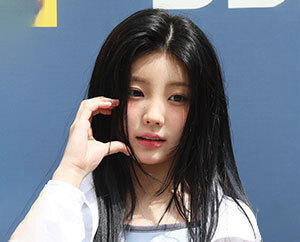 디트로이트의 파산이 경제적 불안을 특징으로 하지만 이런 불안이 미시간과 중서부 지역만의 문제는 아니다. 도시에서 일어날 수 있는 최악의 악몽에 직면한 디트로이트는 1960년대 이후 계속되고 있는 미국의 문화적 추락을 상징한다.
디트로이트의 파산이 경제적 불안을 특징으로 하지만 이런 불안이 미시간과 중서부 지역만의 문제는 아니다. 도시에서 일어날 수 있는 최악의 악몽에 직면한 디트로이트는 1960년대 이후 계속되고 있는 미국의 문화적 추락을 상징한다.
1960년대의 미국은 무엇이든 이룰 수 있다는 낙관주의가 전국에 팽배해 있었다. 튼튼하고 아름답고 믿을 수 있는 자동차는 미국을 상징했다. 디트로이트의 광고문구는 미국의 끝없는 자신감을 반영했다. 뷰익은 최고의 자동차를 만든다고 자부했고 호화승용차의 극치를 달렸던 패커드는 신분의 상징이었다.
자동차는 무한한 미국의 가능성을 나타내는 모범사례였다. 태평양과 유럽에서 치러진 세계대전에서 이겨 승리에 도취한 미국인들은 사업, 기술, 의학, 법률 등 모든 분야에서 무엇이든 성취할 수 있다고 생각했다. 미국인들은 정신의 가능성을 자유로이 탐색할 수 있었다.
할아버지 세대는 사업을 하고 아들 세대는 의사가 되고 손자의 세대는 교수가 될 수 있다는 말이 당시에 유행했다.
많은 사람들이 돈벌이로 자신의 능력을 과시했다. 다른 사람들은 사회의 번영 덕분에 금전문제에 구애받지 않는 즐거움을 만끽했다. 그들은 철학과 문학을 연구했다. 하지만 그 모든 것은 이제 오래전 일이 되었다.
오늘날의 비관주의는 우리의 사고방식에 영향을 미쳐 미래를 점점 좁은 시각으로 바라보게 만든다. 반세기 전에는 대학생의 14%가 인문학을 전공했다. 인문학은 “세계의 사상과 발언 가운데서 최고인” 위대한 각종 이념을 반영하고 인간의 상상력을 해방시켰다.
당시에도 실용적인 사람들이 인문학 전공자들을 다소 깔보았으나 대다수 사람들은 고대부터 현대에 이르는 걸작 저서를 읽는 전통을 지키는 데서 자부심을 느꼈다. 오늘날 인문학 전공자들은 7%로 줄었고 캠퍼스에서 높은 대접을 받는다고 할 수 없다.
디지털 시대를 사는 사람들은 인문학 전공자들이 멸종위기에 처한 사실에 관심을 기울이지 않는다. 미국 예술과학아카데미는 “문제의 핵심”이란 제목의 보고서에서 자연과학과 마찬가지로 인문학이 “정신적 힘”을 육성한다고 주장했다.
지당한 말이지만 이 보고서는 오늘의 청년들이 인문학을 외면하는 중요한 이유를 외면하고 있다. 종신 일자리를 보장받은 교수들은 다문화주의와 정치적 정당성에 입각한 수정주의를 내세워, 신비한 전문용어로 표현된 고대의 진리와 아름다움을 질식시키고 있다.
참으로 유감스러운 현상이다. 위대한 저서로 영혼을 일깨우는 열정이 없을 경우 인문학 교육의 풍요로운 면을 간과하기 쉽다. 스티브 잡스는 아이패드를 공개했을 때 애플의 DNA가 기술 하나만으로 이루어진 것이 아니라고 지적하면서 “인문학과 결합한 기술이 우리의 가슴이 노래하도록 만든다”고 말했다.
잡스는 첨단기술 기업가들이, 위대한 문학작품의 재발견을 통해 이루어지는 상상과 은유 및 이야기 전달 방식을 채용하는 기술혁신자들을 찾는다는 사실을 인식한 유일한 사람이 아니다. 영어 전공자의 불리한 면에 대해 혹평을 자제해 달라는 요청을 받은 어느 첨단기술업계 연사는 “내가 찾는 인재가 바로 영어 전공자들”이라고 대답했다.
작가인 마이클 멀론은 월스트리트저널에 기고한 글에서, 아이디어를 상상의 현실로 변화시키는 분야에서 이야기 전달이 기술공학을 압도한다고 지적했다. 다량의 데이터가 아닌 훌륭한 아이디어가 좌우하는 품질에 눈을 뜨게 만드는 것은 훌륭한 글과 예술에 관한 연구다.
미국 예술과학 아카데미는 “경제적 불안 때문에 교육의 개념이 좁아져 단기적 보수에 초점을 맞추는 현대에 대학은 인문학 교육의 가치를 국민에게 납득시키는 것을 최우선 과제로 삼아야 한다”고 주장한다. 이는, 디트로이트의 파멸을 지켜보는 기술, 경제, 정치 전문가들이 받아들이기 어려운 주문이지만 스티브 잡스의 말에 귀를 기울일 필요가 있다.
수전 필즈 美 신디케이트 칼럼니스트
워싱턴타임스·정리=오성환 외신전문위원
High-tech and humanity
By Suzanne Fields
Economic anxiety defines the Detroit bankruptcy, and not just in Michigan and the Midwest. Detroit is the urban nightmare, symbolic of America's downward cultural spiral since the 1960s, when optimism about what Americans could accomplish was the national elixir. The automobile was the national icon: powerful, beautiful and reliable.
Detroit's advertising slogans reflected America's immeasurable self-confidence. Cadillac boasted that it was "the standard of the world." Buick promised that "when better cars are built, Buick will build them." Packard, then Detroit's ultimate expression of luxury, smugly advised, "Ask the man who owns one."
The car was the example of infinite American possibility. Americans had just returned from winning two wars, one beyond the Atlantic and the other in the Pacific, and we were liberated to think we could do anything - in business, engineering, medicine, the law or whatever else struck our fancy. We were free to explore the possibilities of the mind. There was the saying that the first-generation American had gone into business so his son could be a doctor and his grandson could be a professor.
The returning American soldier, getting a college education on the G.I. Bill as the happy alternative to the war he had just won, could look at his reality in a fresh way. Many measured themselves by their ability to make money; others exhilarated in how prosperity freed them to "rise above" money matters to study philosophy and literature. But all that was a long time ago.
The pessimism of the present day affects the way we think about the future in narrower ways. A half-century ago, 14 percent of college students studied the humanities, the reflection of the great ideas that liberated an imagination grounded in what Matthew Arnold, the 19th-century English poet and critic, described as "the best that has been thought and said in the world."
Aristotle said mastering metaphors was a sign of genius. That may have been exaggeration from the man who espoused the golden mean, but the ancient philosopher understood that poetry had its practical virtues (even if his colleague Plato didn't include the poet in his ideal society).
Humanities majors sometimes were referred to as "eggheads," disdained by their more practical brothers and sisters, but mostly they were proud to carry on a tradition requiring that they read the great works from antiquity to modernity. Humanities majors are down now to 7 percent, and they are not exactly high status on campus.
In a digital age, no one much cares that the humanities major is an endangered species. The American Academy of Arts and Sciences, in a report titled "The Heart of the Matter," makes the case that, like the natural sciences, the humanities feed "mental empowerment." True enough, but the report ignores important reasons why young men and women ignore a humanities major today. Tenured professors smother the beauty and truth of the ancients with arcane jargon, trading the wisdom from the forest for the weeds of multicultural and politically correct revisionism.
That's too bad. Without the passion that stirs the soul with great writing, it's easy to overlook the riches of a liberal arts education. When Steve Jobs unveiled the iPad, he noted that Apple's DNA was not made up of technology alone. "It's technology married with liberal arts, married with the humanities, that yields us the results that make our hearts sing," he said.
Jobs was not alone in recognizing that the high-tech employers seek innovators who employ imagination, metaphor and storytelling, all growing from the rediscovery of great works of literature. Michael Malone, author and teacher, tells of inviting a Silicon Valley high-tech entrepreneur to talk to his college writing class. When he told his visitor to go easy on the downside of life for an English major in a tech-savvy world, the Silicon Valley entrepreneur replied: "English majors are exactly the people I'm looking for." The battleground, writes Mr. Malone in The Wall Street Journal, has shifted from engineering to storytelling as the means of translating an idea into imagined reality. The study of fine writing and the arts opens the mind to a larger nature, to quality measured not by big data, but by big ideas.
"At a time when economic anxiety is driving the public toward a narrow concept of education focused on short-term payoffs," observes the American Academy of Arts and Sciences, "it is imperative that colleges, universities and their supporters make a clear and convincing case for the value of liberal arts education." That's a hard sell to engineers, economists and politicians watching Detroit slide down the tubes, but there's merit in it. You should channel Steve Jobs.
By Suzanne Fields
Economic anxiety defines the Detroit bankruptcy, and not just in Michigan and the Midwest. Detroit is the urban nightmare, symbolic of America's downward cultural spiral since the 1960s, when optimism about what Americans could accomplish was the national elixir. The automobile was the national icon: powerful, beautiful and reliable.
Detroit's advertising slogans reflected America's immeasurable self-confidence. Cadillac boasted that it was "the standard of the world." Buick promised that "when better cars are built, Buick will build them." Packard, then Detroit's ultimate expression of luxury, smugly advised, "Ask the man who owns one."
The car was the example of infinite American possibility. Americans had just returned from winning two wars, one beyond the Atlantic and the other in the Pacific, and we were liberated to think we could do anything - in business, engineering, medicine, the law or whatever else struck our fancy. We were free to explore the possibilities of the mind. There was the saying that the first-generation American had gone into business so his son could be a doctor and his grandson could be a professor.
The returning American soldier, getting a college education on the G.I. Bill as the happy alternative to the war he had just won, could look at his reality in a fresh way. Many measured themselves by their ability to make money; others exhilarated in how prosperity freed them to "rise above" money matters to study philosophy and literature. But all that was a long time ago.
The pessimism of the present day affects the way we think about the future in narrower ways. A half-century ago, 14 percent of college students studied the humanities, the reflection of the great ideas that liberated an imagination grounded in what Matthew Arnold, the 19th-century English poet and critic, described as "the best that has been thought and said in the world."
Aristotle said mastering metaphors was a sign of genius. That may have been exaggeration from the man who espoused the golden mean, but the ancient philosopher understood that poetry had its practical virtues (even if his colleague Plato didn't include the poet in his ideal society).
Humanities majors sometimes were referred to as "eggheads," disdained by their more practical brothers and sisters, but mostly they were proud to carry on a tradition requiring that they read the great works from antiquity to modernity. Humanities majors are down now to 7 percent, and they are not exactly high status on campus.
In a digital age, no one much cares that the humanities major is an endangered species. The American Academy of Arts and Sciences, in a report titled "The Heart of the Matter," makes the case that, like the natural sciences, the humanities feed "mental empowerment." True enough, but the report ignores important reasons why young men and women ignore a humanities major today. Tenured professors smother the beauty and truth of the ancients with arcane jargon, trading the wisdom from the forest for the weeds of multicultural and politically correct revisionism.
That's too bad. Without the passion that stirs the soul with great writing, it's easy to overlook the riches of a liberal arts education. When Steve Jobs unveiled the iPad, he noted that Apple's DNA was not made up of technology alone. "It's technology married with liberal arts, married with the humanities, that yields us the results that make our hearts sing," he said.
Jobs was not alone in recognizing that the high-tech employers seek innovators who employ imagination, metaphor and storytelling, all growing from the rediscovery of great works of literature. Michael Malone, author and teacher, tells of inviting a Silicon Valley high-tech entrepreneur to talk to his college writing class. When he told his visitor to go easy on the downside of life for an English major in a tech-savvy world, the Silicon Valley entrepreneur replied: "English majors are exactly the people I'm looking for." The battleground, writes Mr. Malone in The Wall Street Journal, has shifted from engineering to storytelling as the means of translating an idea into imagined reality. The study of fine writing and the arts opens the mind to a larger nature, to quality measured not by big data, but by big ideas.
"At a time when economic anxiety is driving the public toward a narrow concept of education focused on short-term payoffs," observes the American Academy of Arts and Sciences, "it is imperative that colleges, universities and their supporters make a clear and convincing case for the value of liberal arts education." That's a hard sell to engineers, economists and politicians watching Detroit slide down the tubes, but there's merit in it. You should channel Steve Jobs.
[ⓒ 세계일보 & Segye.com, 무단전재 및 재배포 금지]
![[설왕설래] 총선 민심이 백지수표인가](http://img.segye.com/content/image/2024/04/25/128/20240425520860.jpg
)
![[현장에선] OTT들의 구독료 배짱 인상](http://img.segye.com/content/image/2024/03/14/128/20240314519728.jpg
)
![[오늘의시선] 산으로 가는 연금개혁](http://img.segye.com/content/image/2023/01/05/128/20230105519484.jpg
)
![[세계와우리] 한국의 안보 포트폴리오와 ARF](http://img.segye.com/content/image/2024/02/15/128/20240215519554.jpg
)








